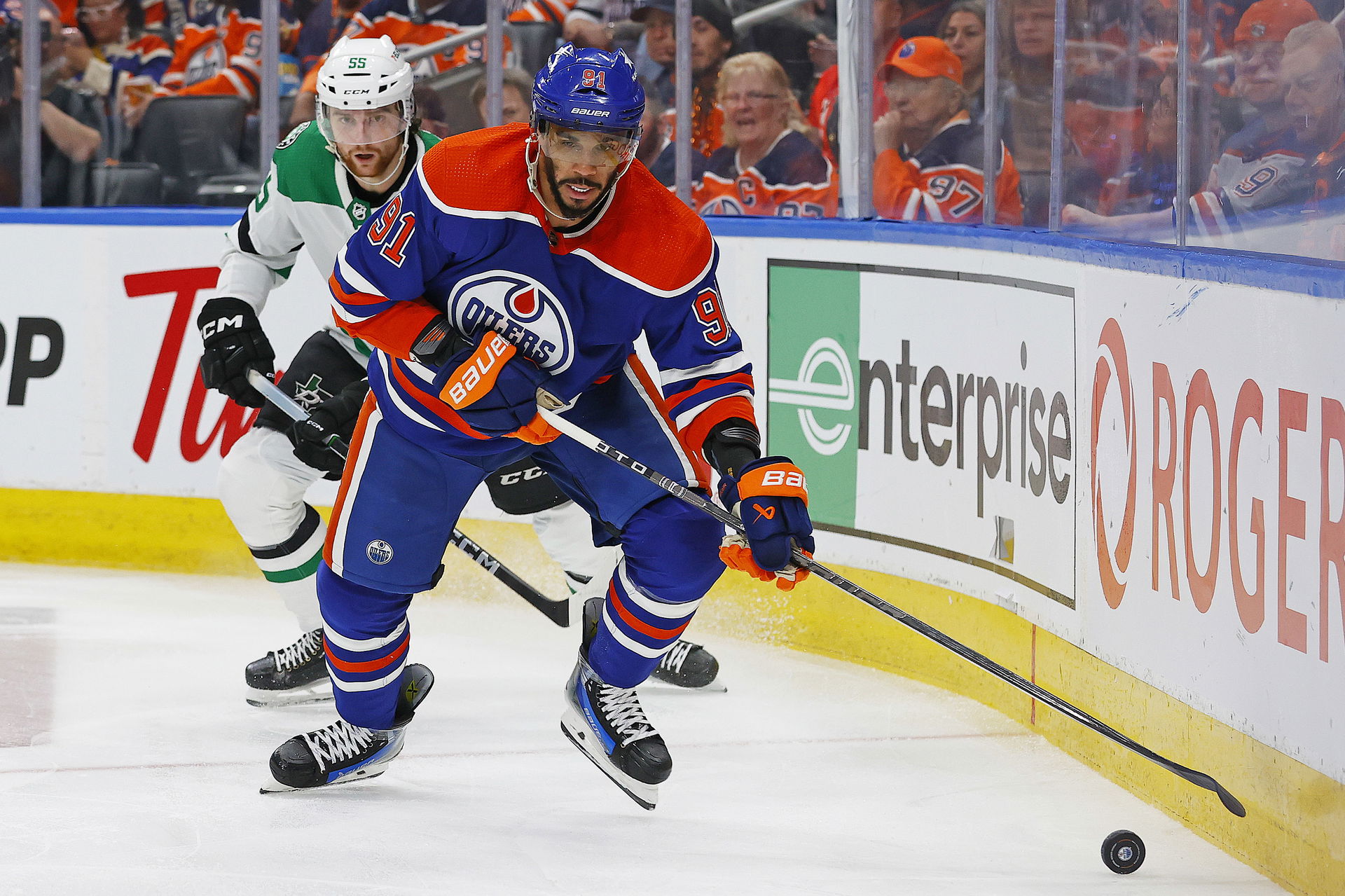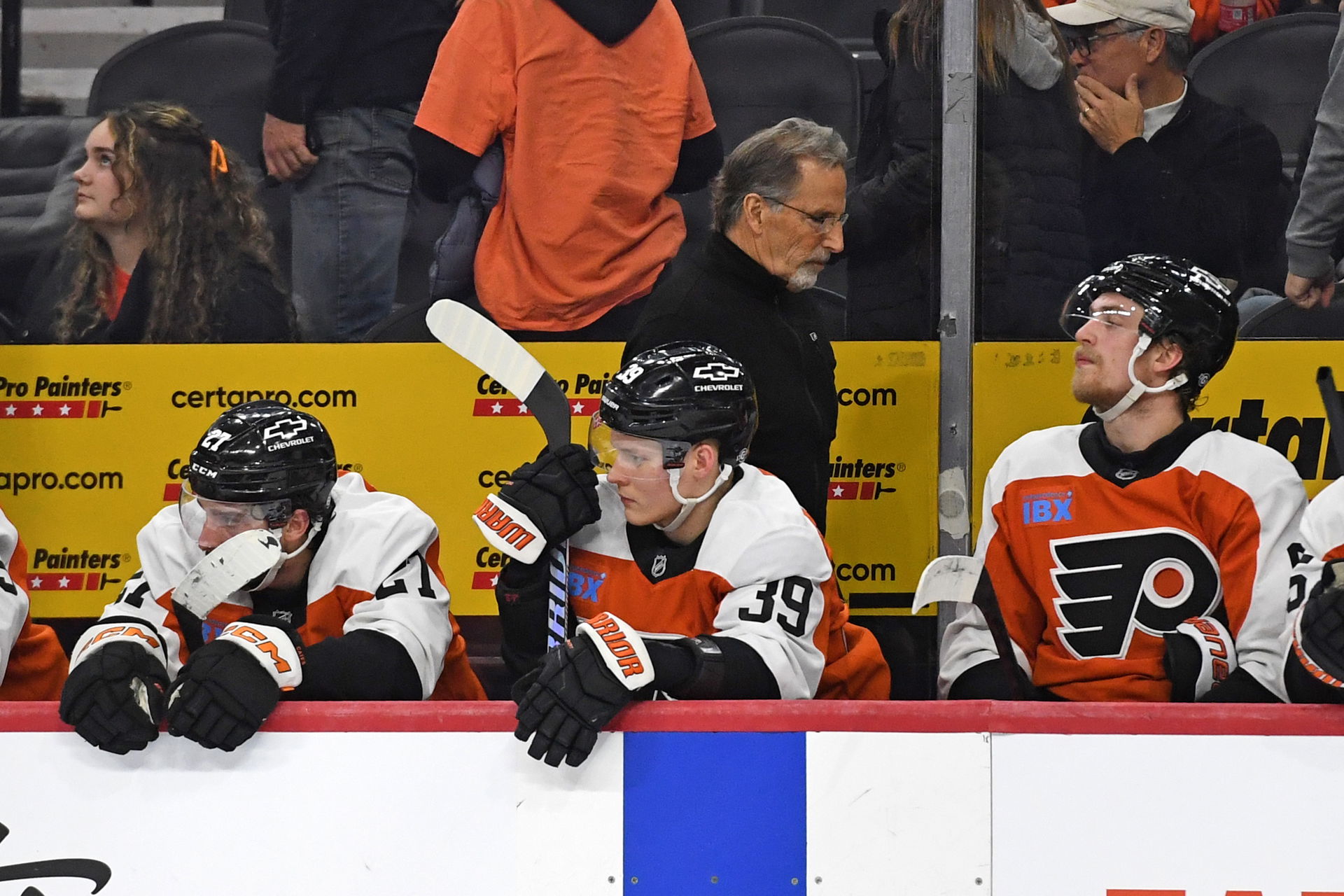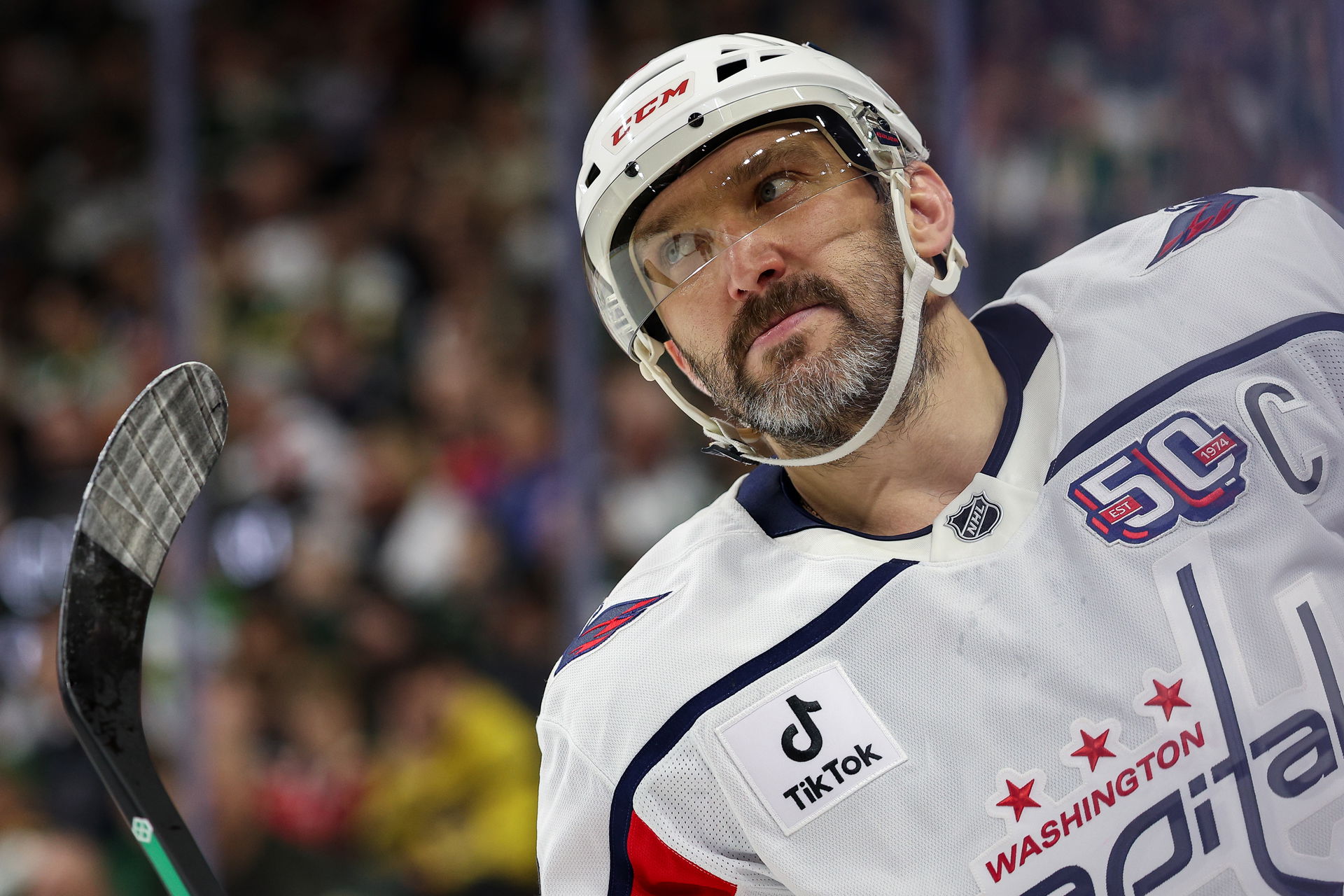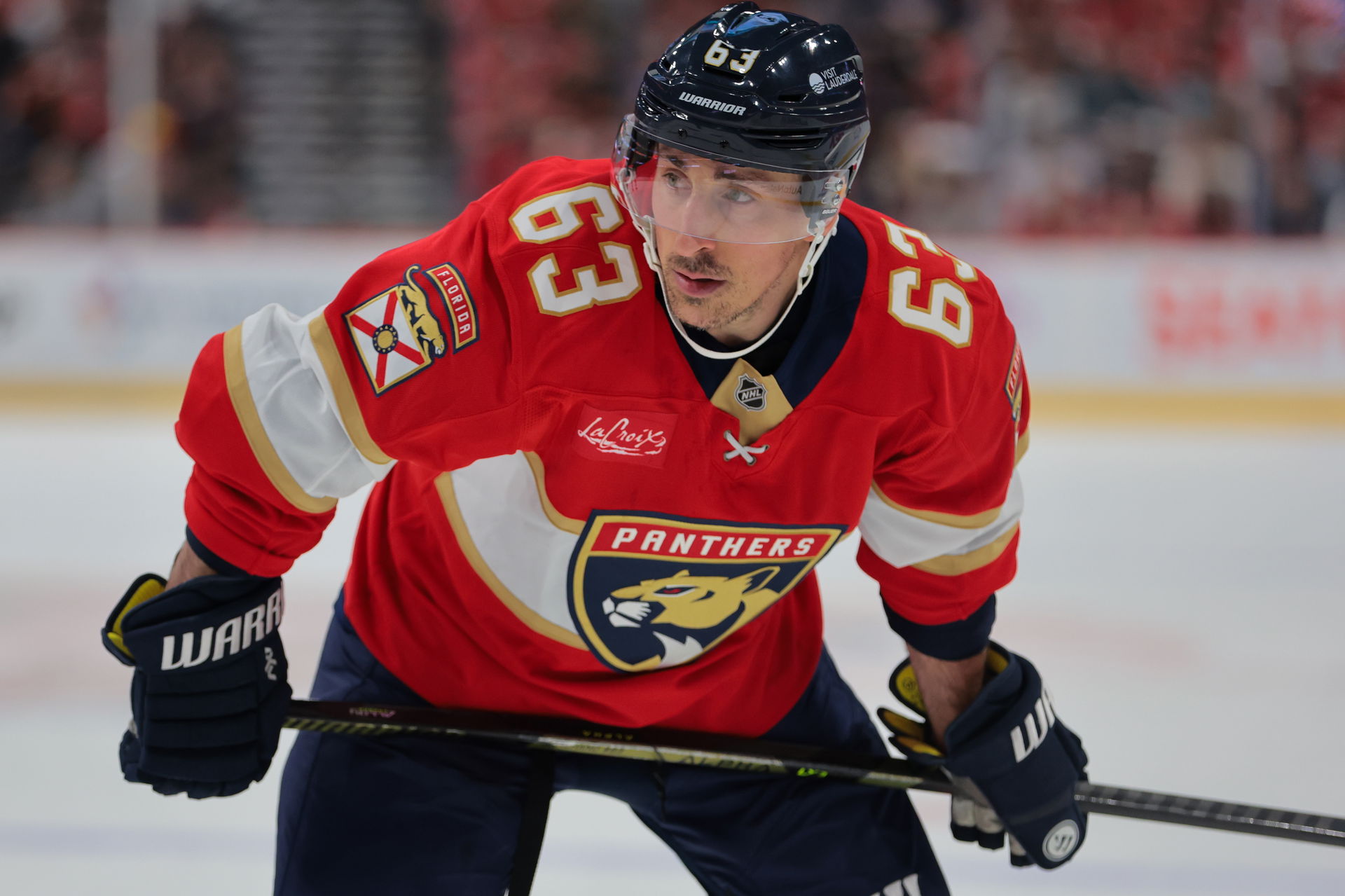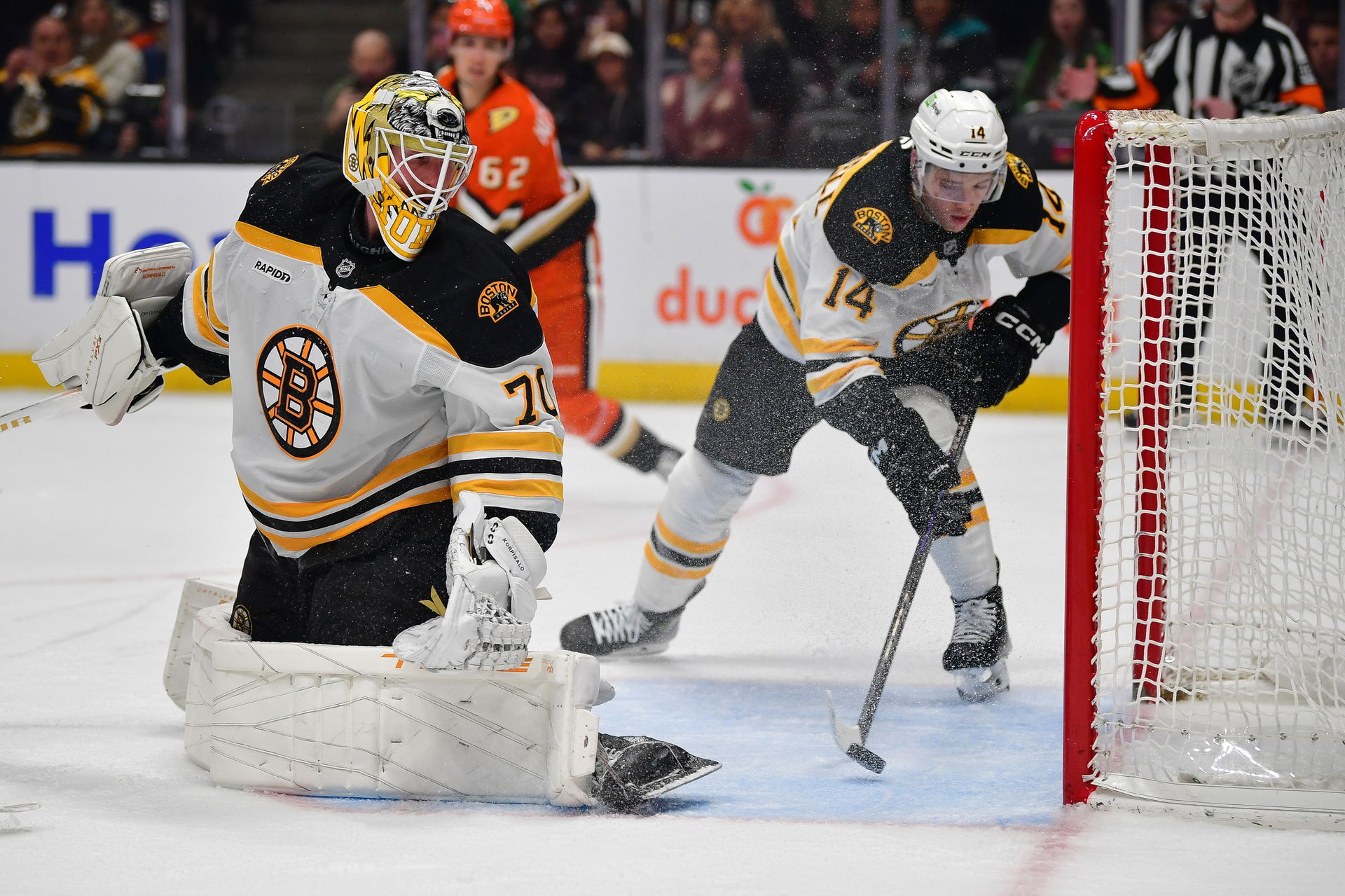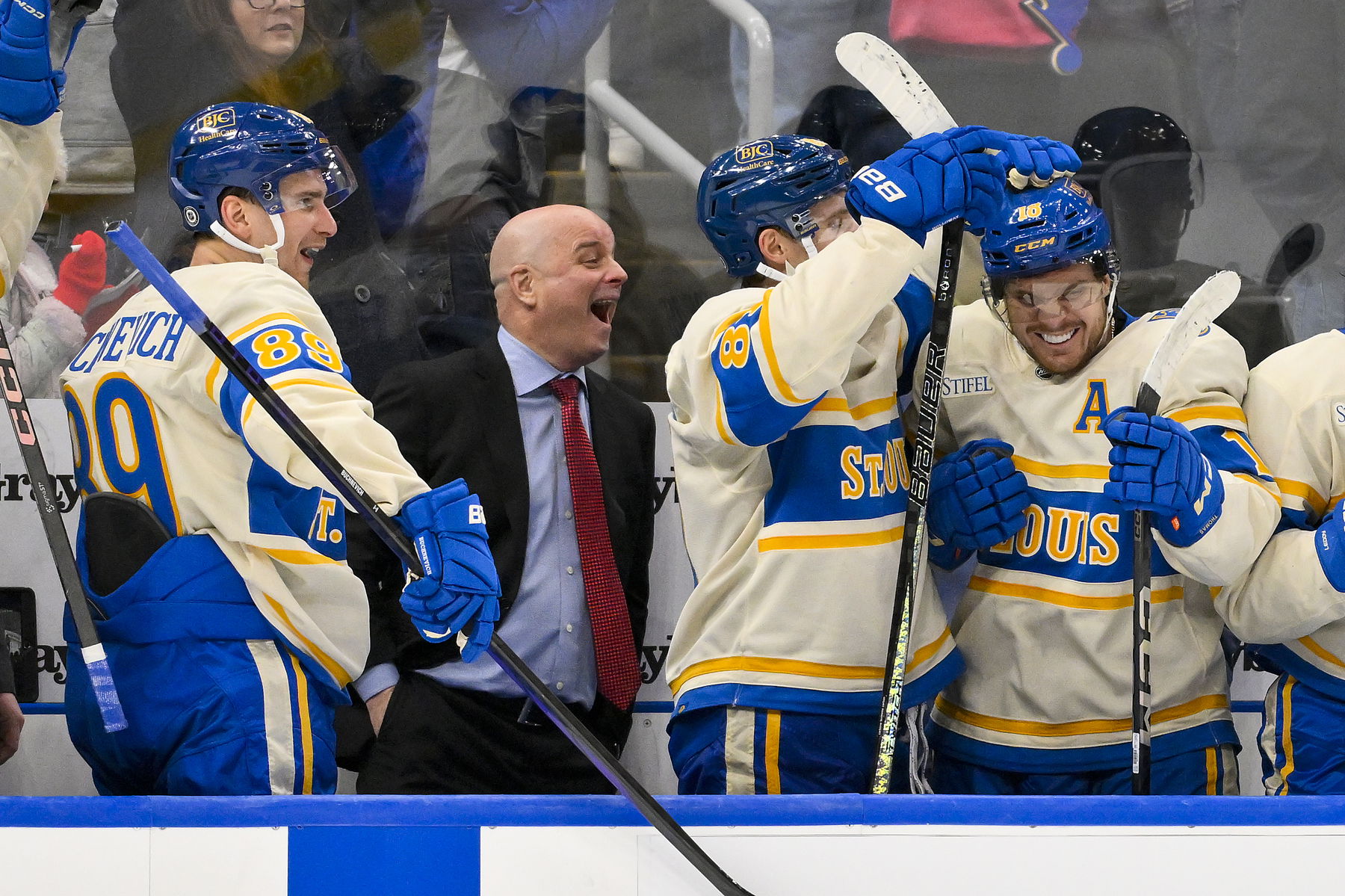
Ask Me Anything: What would Carey Price fetch in a trade?
Deep-dive answers to your most pressing hockey questions.
The fourth installment of the Friday Hockey AMA starts with a group-therapy vibe, as a certain fan base is understandably starting to panic over its team’s ugly start and the bananas trade rumors that accompany it. I’ll do my best to sort through the scuttlebutt and tell you what’s real and what isn’t.
I went into more detail than normal on some of these, meaning we get five beefy answers instead of six this time. Hope that’s OK! Enjoy.
Christopher McIntosh (@cmac1978) asks…
All these people are talking trading Carey Price (I wouldn’t). If that would happen, what would be a serious and realistic return? No. 1 center and No. 2 ‘D’? Hard to imagine anyone wants that contract.
Wow. What a fun question to tackle first. I don’t know where to start, Christopher! It’s tough to remember the last time a player at the peak of his powers, in the middle of his superstardom years, got traded. I’m not even counting Shea Weber for P.K. Subban in that category. I’m talking the Wayne Gretzky trade or the Phil Esposito deal, or Joe Thornton in 2005, or maybe Chris Pronger getting shipped to Anaheim right after carrying the Edmonton Oilers to the 2006 final. Those deals hint at what the magnitude of a Carey Price trade would be. We’re talkin’ the only goalie to win the league MVP in the past decade and a half, fresh off signing an eight-year extension that will make give him the second-highest salary cap hit in the NHL, tied with Jonathan Toews and Patrick Kane, when it kicks in next season. Trading Price before year 1 of the extension would be unprecedented.
Put aside that Price has battled injury trouble on an off for several seasons now and that his current absence gets more mysterious by the day. He’s still young enough that injury concerns wouldn’t scare many teams away, and he’s still talented enough that he can singlehandedly change a team’s fate. Look at Montreal’s record without him over his past few injury absences. He’s just a few months removed from finishing top-10 in wins, goals-against average and save percentage, and the advanced numbers, factoring in things like even-strength and high-danger SP, paint an even prettier picture of his elite skill. I conducted a poll of retired NHL goaltenders, including some Hall of Famers, two years ago, and while there was plenty of debate as to who was No. 2, Price destroyed the field by a landslide. The retired goalies were unanimous in anointing him No. 1.
So even if Price isn’t quite as invincible now as he was in 2014-15, his value remains astronomical once he’s healthy again. The return for him would have to be gargantuan. That said, a No. 1 center and No. 2 defenseman wouldn’t make much sense as a return for either side involved. If you’re the team acquiring Price, and you deal away your top center and second-best defenseman, you’ve weakened your squad so much that you defeat the purpose of the trade. And if you’re the Habs, you’ve improved your lineup for sure, but you’ve lost Carey Price from your net. We don’t know Charlie Lindgren is ready for instant stardom, even if he’s shown flashes of it.
If I’m Marc Bergevin, a Carey Price trade is the big Looney Tunes-style switch Wile E. Coyote uses to dynamite the entire franchise. You deal Price for elite prospects and high draft picks – like what Colorado received for Matt Duchene, but multiply the return twofold. Then you immediately start shopping Shea Weber and Max Pacioretty.
See what I’m getting at here? You don’t deal Price until and unless you’re ready to rebuild. And if Bergevin does so, he’s essentially asking to be fired, admitting he’s screwed up his Stanley Cup chase just months after going for broke with the Price extension and Karl Alzner signing. So I don’t expect any Price trade as long as Bergevin is GM and as long as Montreal is trying to compete for a Stanley Cup. It’s not a realistic idea yet.
Scott (@Scotiooo) asks…
Is there any chance the Isles offer Jaroslav Halak an extension?
Hey Scott. I would be pretty shocked if the Isles offered Halak an extension. First off, we’re talking about goalie coming off a season in which he was stuck in a three-goaltender platoon and demoted to the AHL despite clearly possessing NHL-caliber skills. That’s already a strike in Halak’s camp. Even though he was extremely classy about his demotion, dominated the AHL and returned to the NHL on fire last season…would you want to re-sign with a team that jerks you around like the Isles did last year? Just my opinion, but I would not. It makes sense for Halak to test the open market in case there’s a team willing to offer him more starts than he receives on his current team.
Secondly, from the Islanders and GM Garth Snow’s perspective, Halak will be 33 next season, and he has struggled to start 2017-18, with an SP south of .900. He isn’t outplaying Thomas Greiss, who is a year younger and is signed for two more seasons after this one. The Islanders also have to mega-prospects on the way in net: Linus Soderstrom and Ilya Sorokin. Soderstrom has the inside track to become the team’s long-term answer in goal, blessed with great technique and a Pekka-Rinne-like frame. Soderstrom should make his way to North America by next season, and Sorokin’s KHL contract expires in 2019-20, though there’s always the possibility of an out clause there. It would make sense for the Isles roll with Greiss as the starter one more season, with hope that Soderstrom can slide in as his backup or at worst be NHL-ready after one year with AHL Bridgeport. Maybe Sorokin can follow him a year later – if he ever comes over for good. Both guys have Vezina-caliber ceilings, so you don’t want to block their path to the NHL, which is why I can’t see a Halak extension happening.
Jared Thiessen asks…
What do you think of Detroit rookie Luke Witkowski’s comments after Wednesday’s game against the Calgary Flames about old-time hockey, and how it brings fans to the games?
My feelings about the whole brawl are complex. First off, while I fall more in the anti-fighting basket than the pro-fighting basket, a line brawl like the one between the Red Wings and the Flames Wednesday night doesn’t top my list of things I hate in hockey. At the top would be staged fights, no doubt, and this one wasn’t staged at all. It was born out of emotion, with Brett Kulak rubbing out David Booth to light the fuse, then Witkowski escalating things. I at least have a certain degree of respect for teams getting into a scrap when they’re legitimately furious with each other.
It reminds me of an interview I recently did with retired goalie Kelly Hrudey about his new book. You can read it here. Hrudey spoke a lot about how teams played with a lot more hate in their hearts during his era. He was able to shut it off post-game, but he arrived at the rink with a snarl, thinking of players on the other team as his mortal enemies. When he was an L.A. King, for example, he viewed Flames goalie Mike Vernon as his nemesis. Rivalries like that get the fans fired up, and you could hear the crowd Wednesday night in Detroit. It was old-time hockey indeed, and it has a certain appeal.
But I’m skeptical that it will always be “what the fans want.” Any hockey fan older than, say, 30 years old had exposure to the rougher era and can feel a certain fondness for it. But what about the millennial crowd, the hockey fans born into the death of the enforcer, the era of rolling four lines, the phasing out of illegal checks to the head and the shift toward advanced statistics? I’m not so sure this emerging new generation of fans cares about old-time hockey. These are the people studying CTE in school from the time they’re teenagers. I spoke with Dr. Bennet Omalu – the doctor Will Smith played in the movie Concussion – in the summer, and he explained to me that parents are the people most responsible with saving hockey players from concussions, as they can start drilling the dangers into their kids from a young age and even stopping them from enrolling in contact sports.
“We wouldn’t benefit from attacking the leagues, NFL, NHL,” Omalu said. “No, no, no. These guys are corporations. They are there to make money. So the focus should be on the consumer: the parents. Adults are free to play as long as they have the ability to give consent. But not children. And parents should know this.”
Do you think kids growing up reading philosophy like that will end up loving old-time hockey? Doubtful.
So while Witkowski might be right that the current majority of hockey fans enjoys old-time hockey…will that be true in another 10 or 20 years? The shift away from it has already begun. If you want to hear my interview it Dr. Omalu in its entirety, we included it in one of our THN podcasts. Listen to it here.
HabsFanLogic (@HabsFanLogic) asks…
Can the Ottawa Senators win the Stanley Cup?
This is a much more complex question than it appears to be on the surface, because the Ottawa Senators are the most confusing team in hockey. I’ve given up trying to understand them. Every season, my projections end up slotting them around ninth in the Eastern Conference, but they often defy expectations, especially last year.
On one hand, I don’t love their forward depth outside the top six, and same goes for their blueline depth until Thomas Chabot becomes a full-time NHLer. Their go-to goalie Craig Anderson turns 37 in May. It also feels like a tall order for any team to solve the stacked Tampa Bay Lightning right now, and the Sens happen to share a division with them, meaning the latest the two teams could meet would be Round 3 if Ottawa ends up a cross-over wildcard team and plays through the Metropolitan bracket.
On the other hand: we all know what Erik Karlsson is. He’s a superstar, one of the best three or four offensive defenseman of all time, a top-three player on the planet, capable of changing a game just as much as Connor McDavid or Sidney Crosby or Nikita Kucherov can. Karlsson influences where the puck goes at all times. The Sens also have, in my opinion, the game’s most underrated player in Mark Stone, who is a front-line scorer but also an elite defensive forward, king of the takeaway. Matt Duchene isn’t an epic upgrade over Kyle Turris but is an upgrade nonetheless. And this team has discovered a form of magic with coach Guy Boucher, who deploys the suffocating 1-3-1 defensive scheme, which takes away rival teams’ speed, as if making them skate through molasses. The analytics typically don’t favor Ottawa – it ranks 27th in 5-on-5 Corsi Against (shot attempts allowed) per 60 minutes since the start of last season – but the Boucher system limits the types of scoring chances Ottawa gives up. This season, for example, they’ve allowed the fewest high-danger scoring chances of any team despite grading out as “bad” in Corsi. So maybe all the shots allowed are because Ottawa’s smothered opponents have no choice but to shoot from the perimeter.
I thus can’t bring myself to write Ottawa off as a Cup contender. It came within a goal of beating Pittsburgh last season, after all. We have to take the Sens seriously, even if they squeak into the playoffs as a wild card. And if they don’t end up making a deep playoff run this season, they might in years to come. Karlsson, Stone, Hoffman and Duchene are still in mid-20s, and Ottawa has some exciting prospects on the way. Chabot projects to be a 25-minute-per-night horse of a blueliner, while Colin White has a great two-way game up the middle and towering playmaker Logan Brown has the skill set to be Joe Thornton Lite. Even if people don’t take this team seriously right now, they might in a couple years.
Tim Dvorak (@dvorak_tim) asks…
Why aren’t the Islanders giving Josh Ho-Sang a legitimate chance in the big leagues?
There are two schools of thought to consider with Ho-Sang. One: the knock on him coming into the NHL draft was that his attitude and commitment to defense were questionable. No one doubts his hands and highlight-reel offensive ability. When the Isles demoted him in late October, coach Doug Weight spoke about “some areas to address” in Ho-Sang’s game and mentioned his being his healthy scratch as a “behavioral issue.” Fine. Pretty vague, eh? We can acknowledge Ho-Sang isn’t the most complete player in the game, but does that mean the Isles are better off without him learning in the NHL at this point? He’s talented enough to make a positive impact.
And I don’t think Ho-Sang is the problem, to be honest. I believe it’s a systemic flaw in how the Isles have handled their prospects under the Garth Snow regime, and I dug into it for a story I was researching last year. What do Ho-Sang, Griffin Reinhart, Michael Dal Colle, Matt Barzal and Ryan Pulock have in common? Each was a coveted first-round pick and each has barely gotten a proper look in the NHL years after being drafted, with only Barzal finally breaking through as a true full-timer this season. If we believe the slow ascensions to the NHL are the prospects’ fault, perhaps scouting and development are blame. I spoke to a rival team executive last year who suggested the Isles’ organization invests less in scouting than the rest of the league. I did the research, and guess what I found? They had a fewer listed scouting employees than any team in the league with 12. The league average was 17, and nine franchises had 20 or more. Another league exec suggested to me that the Islanders don’t devote as many resources to farm-club player development as most teams. Look at what Pittsburgh has mined from Wilkes-Barre/Scranton, for example, molding supposed no-names like Bryant Rust and Conor Sheary into bona fide NHLers.
The biggest culprit to me, though: the organization consistently giving veterans priority over youngsters. How could Pulock crack the blueline in previous seasons when Snow kept signing stopgaps like Dennis Seidenberg? And signings such as Andrew Ladd and Jason Chimera have made it tough for the young forwards to find daylight on the depth chart, too.

